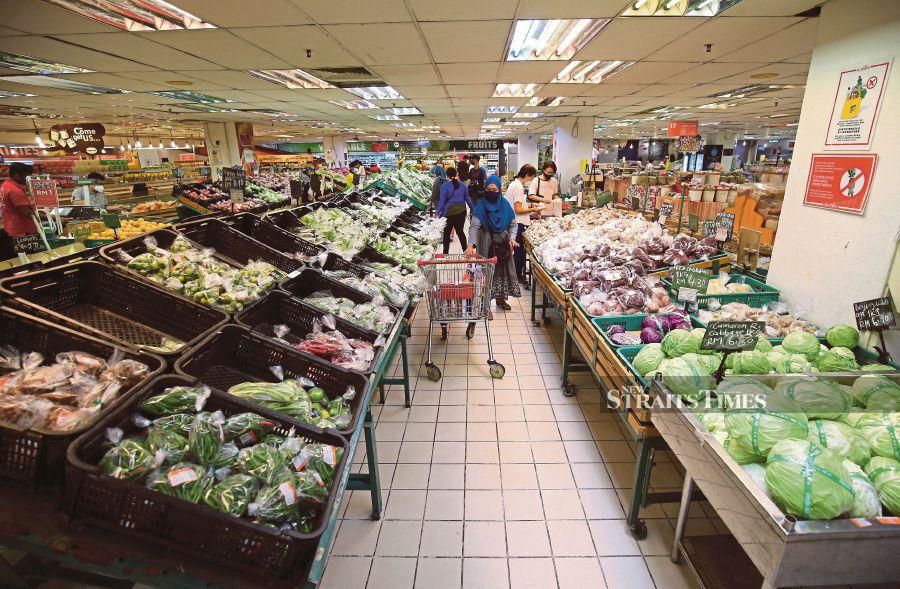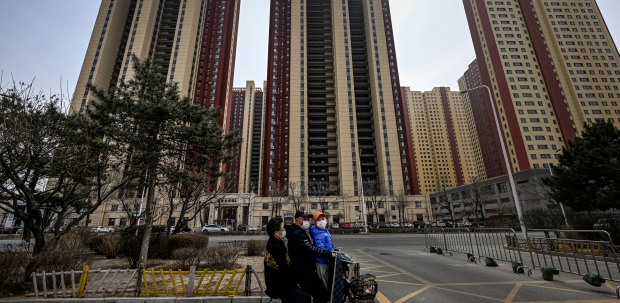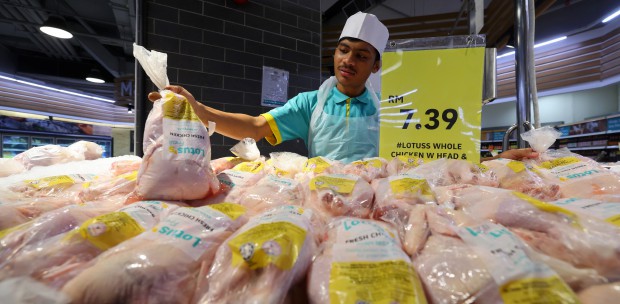THE economic recovery may face another challenge, which may impact those badly affected by Covid-19 and the recent floods.
Their quality of life, which was marked by low income and loss of jobs, will now face the erosion of real income arising from inflation. Inflation always hits hardest upon the low-income earners of the population.
Malaysia's overall inflation rate, measured by the Consumer Price Index (CPI), is about 2 to 3 per cent for March this year and appears to be under control.
However, if one looks at the inflation rate for food — which is relevant to the poor and low-income population — it is much higher.
The ringgit's declining value, continued high quantum of food imports of more than RM50 billion a year, disruptions in world supply chains and geopolitical uncertainties have pressured domestic food prices.
These will impact private consumption, which is the largest component (60 per cent) of aggregate demand.
Price controls on essential goods and government subsidies for energy, public transport and rice production have mitigated the problem.
The recent subsidies for chicken and eggs add to the fragility of our public-sector fiscal management.
As a result, the public financial position often takes the brunt of macroeconomic adjustments to rein in inflationary tendencies, notwithstanding the already high fiscal deficit and public sector debt.
The above scenario seems to underscore the importance of giving more policy attention to food production and security.
Whose responsibility is it?
What are the roles of state governments and local authorities considering that land is a state matter?
We may want to check the role of agencies such as the Federal Agricultural Marketing Authority and Farmers' Organisation Authority, amid high food prices and youth unemployment, and a society still reeling from the effects of Covid-19.
Singapore has promoted urban farming to ensure its food security while creating jobs for its people.
Our local governments have yet to take up urban farming seriously despite the many empty plots in urban neighbourhoods.
Economic and social recovery will not just entail getting output and employment back to pre-crisis levels.
More important is to raise the quality of life in areas such as housing, health and education, as well as environmental standards.
We contained Covid-19 through an aggressive vaccination programme and many fiscal stimuli to support employment and income levels, leading to a six per cent budget deficit.
This is the impact of the first National Recovery Plan, which aimed to take the country out of the Covid-19 scourge.
This year's Hari Raya Aidilfitri is significant as people can balik kampung after two years of travel curbs. Small businesses will thrive when people can shop and travel again.
However, this optimism will likely be guarded on account of uncertain job and business prospects, as well as the threat of inflation on the real income of the B40 group, whose savings are very low or non-existent.
The pent-up demand for travel should be channelled to domestic tourism, to maximise the impact of the country's liberalised movement controls.
The National Recovery Council is preparing the second recovery plan to ensure sustainability and durability of the recovery as we move to endemicity.
The need to facilitate private investment and business cannot be overemphasised in this era of economic liberalisation, competition and deregulation.
In this regard, the obligation to help the recovery is on the shoulders of leaders, civil servants, businessmen and individuals. We have done well in the past crises, but this time, it is quite challenging.
The writer is National Recovery Council chief executive officer and an academic fellow at Universiti Sains Malaysia





